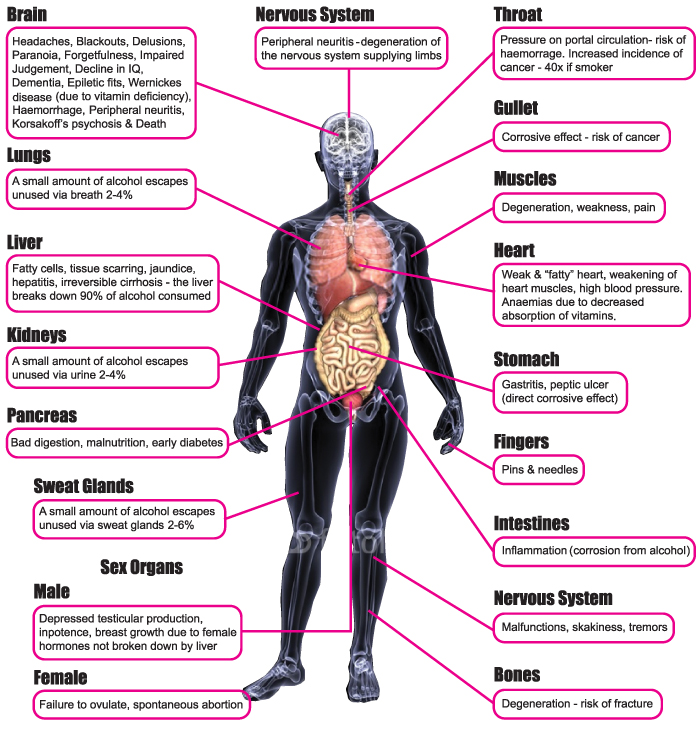18 Nov 2013
Causes and effects of alcoholism
Scientists say that someone who has alcoholic addiction in his/her family is more likely to develop alcoholism if they choose to drink. Alcoholism can also develop or worsen based on a person’s environment and traumatic experiences in life. These factors may include culture, family, friends, peer pressures, and the way the person lives.
Alcoholism can lead people into serious trouble, and can be physically and mentally destructive. Currently alcohol use is involved in half of all crimes, murders, accidental deaths, and suicides. There are also many health problems associated with alcohol use such as brain damage, cancer, heart disease, and diseases of the liver. Alcoholics who do not stop drinking reduce life expectancy by 10 to 15 years.
Too much alcohol can destroy brain cells, possibly leading to brain damage.
Alcohol greatly disturbs the structure and function of the central nervous system, hindering the ability to retrieve, consolidate, and process information.
Moderate consumption of alcohol can affect cognitive abilities while large amounts interfere with the oxygen supply of the brain causing a blackout when totally drunk.
Alcohol addiction may also inflame the mouth, esophagus, and stomach, and could cause cancer in these areas, especially in drinkers who also smoke.
Splurge drinking may produce irregular heartbeats, and abusers experience a higher risk of high-blood pressure, heart attacks, and other heart damage.
Alcohol also can harm vision, damage sexual function, slow circulation, is the grounds for malnutrition, and water retention.
It can also lead to skin and pancreatic disorders, weaken the bones and muscles, thus, decreasing immunity


